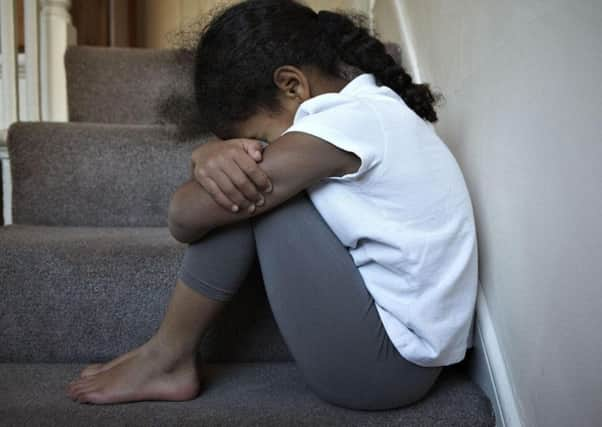Reports to NSPCC Helpline of child neglect in Derbyshire reach record numbers


In 2016-17, the NSPCC Helpline dealt with 211 reports in this way following calls or emails from concerned adults – the highest number the charity has ever had to handle for the local authority area, not including Derby. A figure that is almost double the 106 referrals made in the county in 2011-12.
There were a further 21 contacts where advice was provided about a child possibly facing neglect in Derbyshire during 2016/17.
Advertisement
Hide AdAdvertisement
Hide AdUK-wide, the NSPCC Helpline made 16,882 referrals to children’s services or the police in 2016/17, equivalent to 46 a day.
Child neglect was mentioned in more than a quarter of all UK calls to the NSPCC Helpline in the last year.
This rise shows that more people are willing to speak up about the issue, according to the NSPCC.
The NSPCC explained that neglect happens when a child’s needs are not met and this can be down to several reasons ranging from parents not having the skills, support or funds, or because they have mental health issues.
Advertisement
Hide AdAdvertisement
Hide AdA growing number of people contacting the NSPCC Helpline also described parents as having a problem with alcohol and drugs, with some of them regularly leaving their children unsupervised so they could go drinking with friends.
One neighbour told Helpline staff: “The children are home alone again. I saw the mother leave the house earlier this morning and it’s past midnight now.
“I’ve seen the children peer through the curtains a few times as if they’re waiting for her.
“She does this every Friday night to go out drinking with her mates.
Advertisement
Hide AdAdvertisement
Hide Ad“I’m really confused about what to do as I don’t want to ruin the relationship with the mother as we are neighbours but at the same time I am really worried about the children. What should I do?”
A family member of a suspected neglected child said: “I am concerned for the safety of a little boy. He does not seem to be getting adequate care at home.
“His mother doesn’t seem interested in looking after him and lets him stay up all night.
“She has alcohol and drug abuse problems. He is regularly being left unsupervised and I am worried that he could seriously hurt himself at home alone, because I know it has happened before.”
Advertisement
Hide AdAdvertisement
Hide AdThese latest figures on neglect cases have been revealed in the NSPCC’s state of the nation report How Safe are our Children? This comes as children’s social care in England faces unprecedented pressures with more young people being taken into care and more families needing support, according to the NSPCC.
However, the NSPCC believes the full scale of the problem could be much greater and is urging the Government to commission a nationwide study that measures the extent of child neglect and abuse in the UK.
Neglect can have serious and long-lasting effects. In the worst cases, it can lead to a child suffering permanent disabilities or even dying from malnutrition.
Common signs and symptoms adults may notice in a child who is being neglected include: Poor appearance and hygiene - they may be smelly or have unwashed clothes; Living in an unsuitable home environment for example dog mess being left or not having any heating; Left alone for a long time; Untreated injuries, medical and dental issues; They may have skin sores, rashes, flea bites, scabies or ringworm; Poor language, communication or social skills; Seeming hungry or turning up to school without having breakfast or any lunch money.
Advertisement
Hide AdAdvertisement
Hide AdSandra McNair, Head of Service for the NSPCC in the Midlands, said: “Neglect can have severe and long-lasting consequences for children, and can also be an indicator of other forms of abuse.
“This is why it is so important for anyone suspecting a child of being neglected to contact the NSPCC Helpline, so we can alert the authorities to quickly step in and help those in need.
“At the same time, it is vital we understand the true nature and scale of child neglect in the UK so we can collectively tackle the fundamental causes.
“Therefore, a Government commissioned, nationwide prevalence study on child abuse and neglect needs to be conducted, and sooner rather than later.”
Adults can contact the NSPCC Helpline 24 hours a day, 365 days a year on 0808 800 5000, or [email protected].